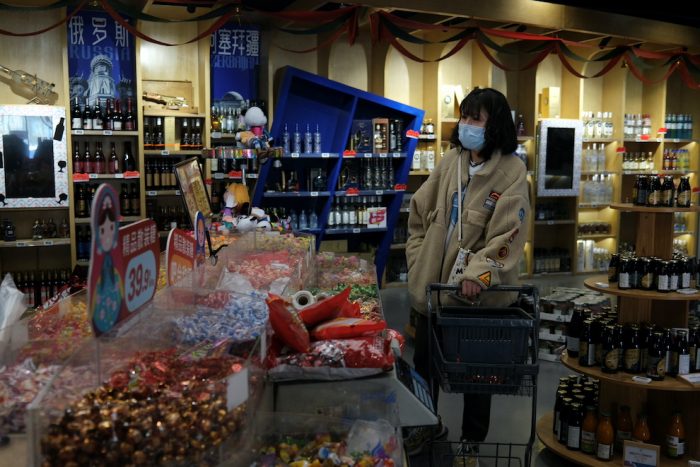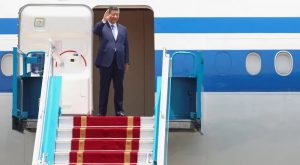The Chinese economy has started the year slowly, looking weak with deflationary pressure rising from persistently soft domestic demand.
Official data showed factory-gate prices falling for a second straight year in 2024, while consumer prices only rose marginally.
A combination of job insecurity, a prolonged housing downturn, debt and tariff threats from the incoming administration of US President-elect Donald Trump has hit demand, even as Beijing ramps up stimulus.
ALSO SEE: Trump May Declare National Economic Crisis For New Tariffs: CNN
The full-year consumer price index (CPI) rose 0.2%, data from the National Bureau of Statistics showed, in line with the previous year’s pace and well below the official target of around 3% for last year, suggesting inflation missed annual targets for the 13th straight year.
In December, the CPI crept up 0.1% year-on-year, slowing from November’s 0.2% increase and the weakest pace since April. That was in line with forecasts in a Reuters poll of economists.
However, core inflation, which excludes volatile food and fuel prices, nudged up slightly to 0.4% last month from 0.3% in November, the highest in five months.
Upstream, the producer price index fell 2.3% year-on-year in December, slower than the 2.5% fall in November and an expected 2.4% decline. Factory-gate prices have remained deflationary for 27 straight months.
The pickup in core consumer prices and the slower pace of factory deflation suggested “policy stimulus is providing some support to demand and prices,” Julian Evans-Pritchard, Head of China Economics, said.
“But with the prop from stimulus likely to be short-lived, we think underlying inflation will drop back again later this year.”
EV price war
In addition to an electric vehicle price war that is entering its third year, discounting is now broadening across the retail sector to include bubble tea shops and other discretionary items.
Cautious consumers are increasingly opting to rent items, such as cameras and handbags, instead of buying them.
“The deflationary pressure is persistent,” Zhang Zhiwei, president and chief economist at Pinpoint Asset Management, said.
“The property sector downturn has not ended, which continues to weigh on consumer sentiment,” he said. “The inflation outlook to a large extent depends on the effectiveness of the fiscal policy.”
In late December, the World Bank upgraded its forecast for China’s economic growth in 2024 and 2025 but warned that subdued household and business confidence, along with property sector headwinds, would remain a drag.
China has agreed on a record $411 billion worth of special treasury bond issuance, as Beijing cranks up fiscal stimulus to revive a faltering economy.
Beijing will sharply increase funding from ultra-long treasury bonds in 2025 to spur business investment and consumer-boosting initiatives, the state planner said last week.
Authorities have earmarked $41 billion in funds from government bonds in July to finance equipment upgrades and trade-ins of consumer goods including autos.
- Reuters with additional editing by Jim Pollard
ALSO SEE:
Trump Says He And China’s Xi Will Likely ‘Get Along Very Well’
Top Carmakers Continue China’s EV Price War For a Third Year
China Plans Record $411 Billion Bond Issuance in 2025: Sources
Trump Planning to Clamp Down on Chinese EV Supply Chains
China Seen Taking on More Debt to Counter Trump Tariffs
China Central Bank ‘to Allow a Weaker Yuan’ as Trade Risk
Chinese Media to Trump: ‘There Are No Winners in Tariff Wars’
China ‘Keen For Talks on Trade Deal to Reduce Tariffs Threat’
























